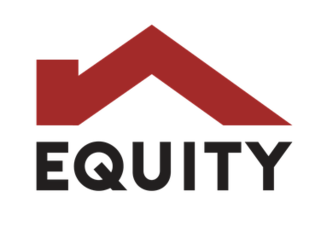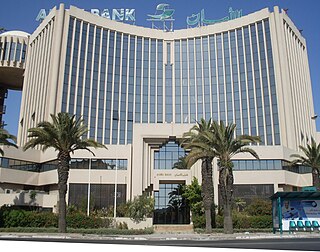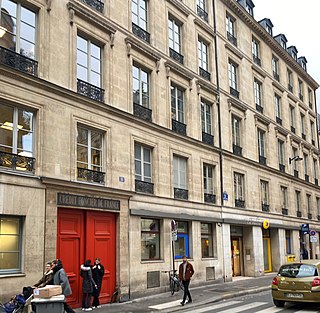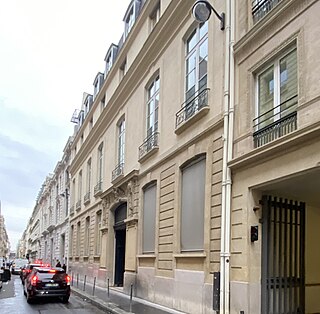
HSBC Continental Europe, known until December 2020 as HSBC France SA, is a subsidiary of HSBC, headquartered in Paris.
Libyan Foreign Bank (LFB) was established in 1972 in Tripoli, Libya as Libyan Arab Foreign Bank; it was renamed Libyan Foreign Bank in 2005. It was Libya's first offshore banking institution licensed to operate internationally. The Central Bank of Libya owns 100% of LFB. The head office is located in Libya's capital Tripoli.

Banque Misr is an Egyptian bank co-founded by industrialist Joseph Aslan Cattaui Pasha and economist Talaat Harb Pasha in 1920. The government of the United Arab Republic nationalized the bank in 1960. The bank has branch offices in all of Egypt's governorates, and currency exchange and work permit offices for foreign workers in Egypt.
The Sahara Bank is a Libyan commercial bank, established in 1964. The bank performs retail and corporate banking operations and its head office is located in Tripoli.

Banque Populaire was a French group of cooperative banks, with origins in the European cooperative movement. In 2009, it merged with Groupe Caisse d'Épargne to form Groupe BPCE.

Ecobank, whose official name is Ecobank Transnational Inc. (ETI), is a pan-African banking conglomerate, with banking operations in 33 African countries. It is the leading independent regional banking group in West Africa and Central Africa, serving wholesale and retail customers. It also maintains subsidiaries in Eastern and Southern Africa. ETI has an affiliate in France, and representative offices in China, Dubai, South Africa, and the United Kingdom.
BPR Bank Rwanda PLC, formerly Banque Populaire du Rwanda SA, is a commercial bank in Rwanda. The bank is licensed by the National Bank of Rwanda, the central bank and national banking regulator.

Equity Bank Kenya Limited is a Kenyan bank and financial services provider headquartered in Nairobi providing retail banking and commercial banking services. The bank is licensed as a commercial bank by the Central Bank of Kenya, which is the national banking regulator of Kenya.

Amen Bank is a private sector bank in Tunisia. It is listed in the Bourse de Tunis.

Kamal Mokdad is a Moroccan banker and businessman who is the general manager of Banque Centrale Populaire of Morocco. He is also the head of International Global Banking and the chief executive officer of BCP Consulting.
BRED is one of the cooperative banks part of Groupe Banque Populaire in France. It was founded in 1919 by Louis-Alexandre Dagot in Vincennes. As of 2018, the Bank has a network of 400 local branches in France. 30% of its 6,600 employees are located outside France and in French overseas collectivities. It has 5.8 billion euros of shareholders equity.

The Compagnie Algérienne, from 1942 to 1948 Compagnie Algérienne de Crédit et de Banque, was a significant French bank with operations in Algeria, Morocco, Tunisia and Lebanon as well as mainland France. It was formed in 1877 in a restructuring of its predecessor entity, the Société Générale Algérienne, itself founded in 1865-68. The Compagnie Algérienne eventually merged in 1960 with the Banque de l'Union Parisienne. Following a series of subsequent restructurings, its main successor entities as of 2022 are the Crédit du Nord in France, the Crédit populaire d'Algérie in Algeria, the Banque de Tunisie in Tunisia, Attijariwafa Bank in Morocco, and the Banque Libano-Française in Lebanon.

The Crédit Foncier d'Algérie et de Tunisie was a French colonial bank. It was originally founded in 1880 as the Crédit Foncier et Agricole d'Algérie, an Algerian affiliate of Crédit Foncier de France, and took its name CFAT in 1909 following expansion to Tunisia. In 1963, following Algerian independence, it renamed itself as Société Centrale de Banque (SCDB). It was acquired by Société Générale in 1971 and eventually absorbed by it in 1997. Its former overseas operations have become part of Banque Nationale d'Algérie in Algeria, Amen Bank in Tunisia, Société Générale in Morocco, and Fransabank in Lebanon.








